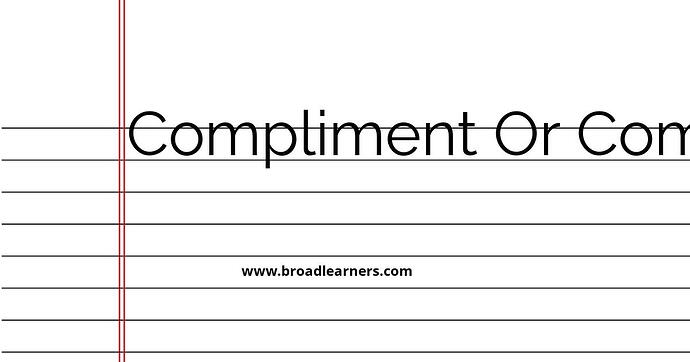'Compliment' and 'complement' are commonly confused words in English grammar. Understanding the difference between 'compliment' and 'complement' is important to use them correctly in written and spoken English.
'Compliment' is a noun or a verb that refers to a polite expression of praise, admiration, or approval. It is used to say something nice about someone or something.
'Complement' is a noun or a verb that refers to something that completes or enhances something else when added to it. It is used to describe something that goes well with or enhances another thing.
Let's take a closer look at the meanings and usage of 'compliment' and 'complement'.
| 'Compliment' | 'Complement' |
|---|---|
| The word 'compliment' is used to express praise or admiration. | The word 'complement' is used to describe something that completes or enhances something else. |
|
|
To remember the difference between 'compliment' and 'complement', it can be helpful to remember that 'compliment' with an 'i' is about praising or saying something nice, while 'complement' with an 'e' is about completing or enhancing something.
Here are some examples of correct usage:
- She received a compliment on her new dress. (praise)
- The color of the flowers complements the decor. (enhances)
- He complimented her on her presentation skills. (praised)
- The team worked together in perfect complement. (completed each other)
Remembering the correct usage of 'compliment' and 'complement' will improve your grammar and communication skills.
